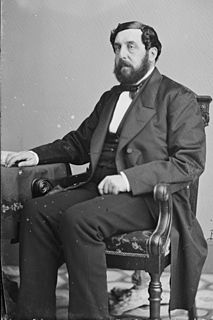A Quote by Henry Theodore Tuckerman
It is amusing to detect character in the vocabulary of each person. The adjectives habitually used, like the inscriptions on a thermometer, indicate the temperament.
Related Quotes
I found it liberating to sing on camera. On stage, you have to indicate having a thought, and the word you are singing must indicate it as well, but on camera, you can have ideas, you can take in all the stimuli that the character would be taking in, there's a freedom you get, and you don't have the obligation to transmit each idea to the back of the house. It felt so much closer to reality for me.
I like to imagine a person's psyche to be like a boardinghouse full of characters. The ones who show up regularly and who habitually follow the house rules may not have met other long-term residents who stay behind closed doors, or who only appear at night. An adequate theory of character must make room for character actors, for the stuntmen and animal handlers, for all the figures who play bit parts and produce unexpected acts. They often make the show fateful, or tragic, or farcically absurd.
If you think of even Tolstoy or a book like 'Anna Karenina,' you go from character to character, and each section is from the third person perspective of a different character, so you get to see the whole world a little more kaleidoscopically that way. That's traditional narrative manner, and I haven't done a book like that before, but I enjoyed it.





































